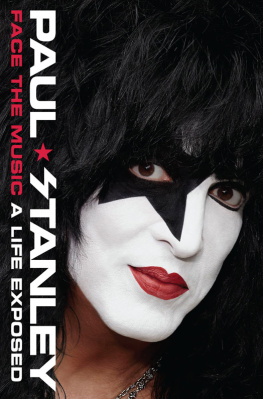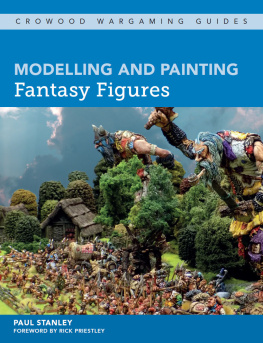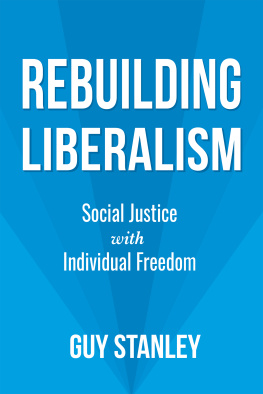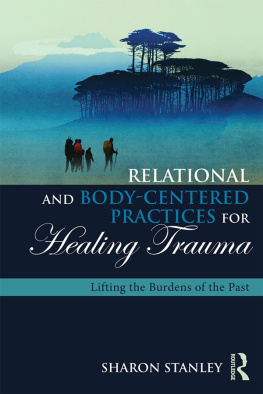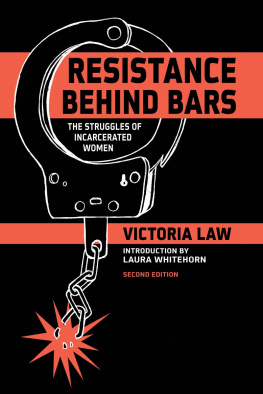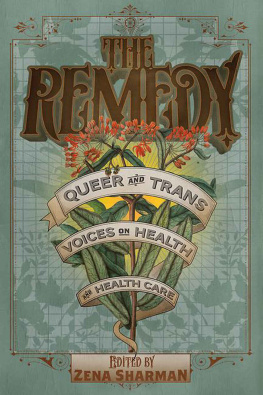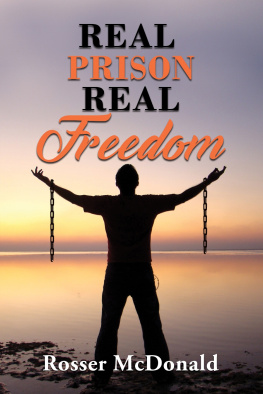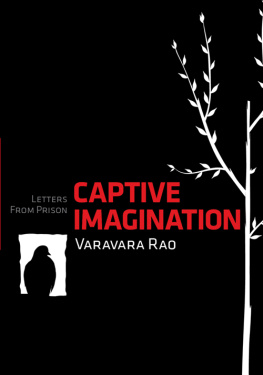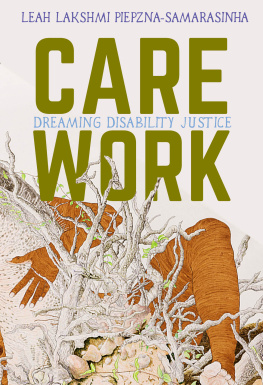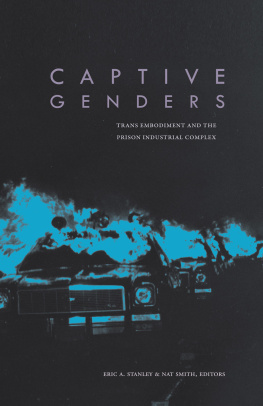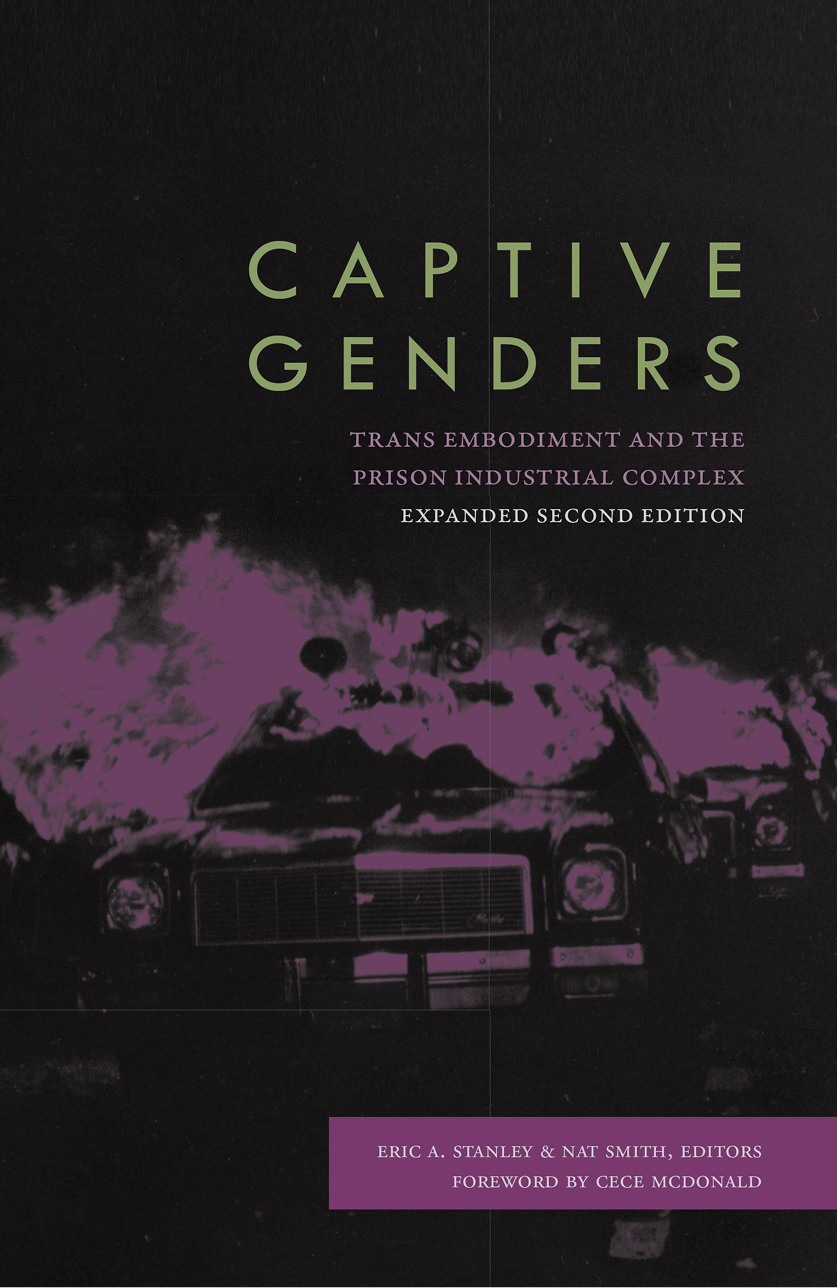Advance Praise for Captive Genders
The powerful analysis and compelling arguments in this collection force readers to conclude that the political and theoretical connection between prison abolition and trans and queer liberation is fundamental to social transformation and justice.
Beth E. Ritchie author of Arrested Justice: Black Women, Violence, and Americas Prison Nation
Captive Genders reminds and instructs that life is about relationships and desires free from neglect and repression, gendered constraints, policing and brutality, and disappearance. The anthology contributors share transformational insights, mini-memoirs, analyses and theories about captivity. Their writings lead and nurture us to a deeper understanding and struggle for justice with freedom and peace.
Joy James, author of Seeking the Beloved Community
Captive Genders is an essential book that brings home that trans and gender non-conforming lives are deeply structured by the prison, that violence can never be an antidote to violence, that abolition must extend to the gender binary, and that formerly incarcerated Black trans women will lead the way.
Jin Haritaworn, author of Queer Lovers and Hateful Others: Regenerating Violent Times and Places
Captive Genders is an exciting assemblage of writingsanalyses, manifestos, stories, interviewsthat traverse the complicated entanglements of surveillance, policing, imprisonment, and the production of gender normativity. Focusing discerningly on the encounter of transpersons with the apparatuses that constitute the prison industrial complex, the contributors to this volume create new frameworks and new vocabularies that surely will have a transformative impact on the theories and practices of twenty-first century abolition.
Angela Y. Davis, p r o f e s s o r e m e r i t a, University of California, Santa Cruz
The purpose of prison abolition is to discover and promote the countless ways freedom and difference are mutually dependent. The contributors to Captive Genders brilliantly shatter the assumption that the antidote to danger is human sacrifice. In other words, for these thinkers: where life is precious life is precious.
Ruth Wilson Gilmore, author of Golden Gulag: Prisons, Surplus, Crisis, and Opposition in Globalizing California
Captive Genders is at once a scathing and necessary analysis of the prison industrial complex and a history of queer resistance to state tyranny. By analyzing the root causes of anti-queer and anti-trans violence, this book exposes the brutality of state control over queer/trans bodies inside and outside prison walls, and proposes an analytical framework for undoing not just the prison system, but its mechanisms of surveillance, dehumanization, and containment. By queering a prison abolition analysis, Captive Genders moves us to imagine the impossible dream of liberation.
Mattilda Bernstein Sycamore, author of So Many Ways to Sleep Badly and editor of Why Are Faggots So Afraid of Faggots?: Flaming Challenges to Masculinity, Objectification, and the Desire to Conform
Foreword
By CeCe McDonald
My political education began while I was incarcerated for defending myself against a racist and transphobic attack. During my time in prison, I began reading books about revolutionary politics, like the autobiographies of Assata Shakur and Huey P. Newton, Angela Daviss Are Prisons Obsolete? , and the first edition of Captive Genders . It was here that I learned about Miss Major, who helped lead the Stonewall Uprising, and how strong trans women of color like her were kicked out of the official story by transphobia, capitalism, racism, sexism, and so many other things that dull the light of our intellectual past. Our schools are filled with clichd textbooks and false histories, and once Id read up, I realized Id been hoodwinked for most of my life. These radical books helped move me in a direction where I can now continue this legacy that these profound leaders have left.
While inside, I started sharing this knowledge with the other prisoners who I talked to at lunch, dinner, and break time. In the beginning, I was scaredI was a trans woman surrounded by so many men, but they were really inviting and sincere. They wanted to know who I was as a person, as a trans woman, and they wanted to know my struggles as a trans woman. This surprised me because the media portrays people in prison as angry, evil, and deceiving. For me it was the oppositethose behaviors came from the staff more than they did from the other inmates. I figured, if I can connect with these people that society deems criminals, then why cant I do this with everybody who is oppressed? I would explain things like capitalism, sexism, transphobia, and the prison industrial complex using analogies from my life, because we all know it can get boring when people just get really intellectual about it. We have to make prison abolition inviting, so people can see it from their own perspective.
Building these relationships with other inmates was really deep for me, because its easy to believe the lies the media says about people in prison. I always believed I would never be one of those people who ended up incarcerated, especially because growing up, I saw my father in prison. Most people in prison arent the criminals that the media portrays us to be. A lot of people in prison are political warriors who stood up for our freedom, and were here because of their work. Trans women of color are also targeted by the police state, and we have the highest rates of incarceration and violence. Millions of other people also get caught up in this system that evolved from the slave trade and is still maintained through racism, imperialism, patriarchy, and every other form of hierarchy.
Like slavery, there is no other way around the violence of the PIC, so we have to destroy it. We cant hold onto these powerful institutions that oppress people and expect that they will go away just because we reform them. Of course, change is good, but in instances of systematic oppression, like prisons, there is no way for it to be reformed. Thats just like saying we can reform racismtheres no better form of racismyou have to abolish it. Racism lives within the prison industrial complex, and in order to end that, to end racism, wed have to abolish all those powerful institutions that allow that energy to navigate through our lives.
When I was in prison I would sit in my cell and think about how, if I got struck by lightning, maybe I would gain superpowers so I could start kicking down all these walls. This was my form of imaginative abolition, but I also apply it to real life. For me kicking down the walls is educating people, and constantly educating myself. There are so many ways that we can work toward justice, but first we have to find out what justice actually is without just throwing people in prison and believing thats it. As alternatives to locking people up, we can put these people back in our communities and help them understand how they became part of this system that was created for our downfall. Right now Im working on rebranding prison abolition in a way that connects to the people around me. You can still be cute, and wear talons, and be an abolitionist.
Along with talking about the PIC, we have to actually do things to end it. We easily use words like activist and ally, but we often dont live up to them. Im so sick of people walking around saying they are an advocate, activist, or ally. No, boo, if you say you showed up to a meeting once and but just spend your day sitting online, thats not activism. There are people who put their lives on the line every day for us to just be able to walk outside.



